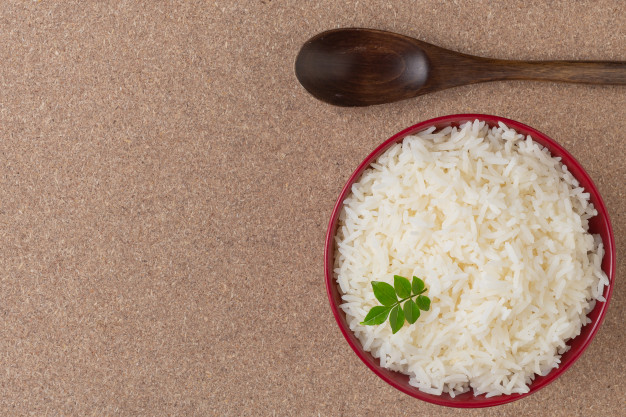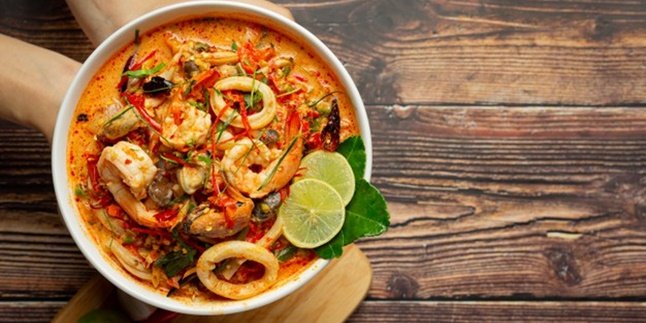Kapanlagi.com - Mutih fasting is one of the fasts related to Javanese ancient traditions or known as Javanese asceticism. This fast is carried out with specific purposes such as finding a partner, fortune, success in wishes, or supernatural and mystical knowledge. Unlike obligatory or voluntary fasts in Islam, the intention of mutih fasting is recited in Javanese language.
As the name suggests, mutih fasting is done by consuming only white-colored foods. For example, it includes white rice, white milk, white sugar, egg whites, salt, water, and so on. This is one of the fasts in Javanese ancient traditions that is carried out with specific purposes.
READ ALSO: Know Your Weton by Knowing Someone's Character Based on Neptu
To carry out mutih fasting, the procedures are different from obligatory or voluntary fasts in Islam. This is because in this fast, eating and drinking are still allowed, but only with white-colored foods, both during suhoor and iftar.
To understand more about mutih fasting, you can read the following explanation. Here are the intentions, procedures, prohibitions, and benefits of mutih fasting that have been summarized by kapanlagi.com from various sources.
1. Understanding Mutih Fasting

(credit: freepik.com)
As mentioned in the previous review, mutih fasting is one of the fasts practiced by people with beliefs in Javanese ancient traditions or kejawen. The term mutih fasting comes from the word mutih which means white. This means fasting is done by avoiding food and drink other than white.
For example, only eating white rice without side dishes, drinking water, milk, eggs, granulated sugar, and so on. There are various purposes for practicing mutih fasting, such as finding a partner, achieving goals, supernatural and supernatural knowledge, and so on.
According to the beliefs of ancient Javanese people, mutih fasting is believed to cleanse the heart, cleanse the soul, and cleanse from evil or negative energies. Usually, someone who practices mutih fasting is accompanied by a teacher or elder who guides the time of implementation, either for three consecutive days or a maximum of 40 days.
2. Intention of Fasting Mutih

(credit: freepik.com)
The intention of fasting mutih is different from the intention of fasting recited in Islamic teachings, where the recitation uses Javanese language. The recitation of the intention of fasting mutih can be seen through the following explanation.
"Niat ingsun puasa mutih supaya putih bathinku, putih badanku, putih kaya dining banyu suci kerana Allah Ta'ala."
Meaning: "I intend to fast mutih in order to purify my soul, purify my body, purify like holy water for the sake of Allah Ta'la."
3. Procedures for Fasting Mutih

(credit: freepik.com)
After understanding the recitation of the intention of fasting mutih, the procedures for observing this fast are slightly different from obligatory or sunnah fasting in Islam. However, this fast is also preceded by reciting the intention of fasting mutih after the Isha prayer until before dawn.
In addition, before observing it, it is advisable to determine the duration of the fast, either for 3 consecutive days or a maximum of 40 days, according to the guidance of a teacher or elder.
This mutih fast is usually observed from 6:00 PM and ends at 6:00 PM the next day. Meanwhile, in several sources, it is mentioned that the mutih fast can be done in two ways:
- It is still allowed to eat and drink several times a day according to meal times, but only white-colored foods are allowed.
- The mutih fast is done by eating only once when breaking the fast and continuing until waking up on the second day, then eating or drinking only white-colored foods.
4. Reading of Dzikir Puasa Mutih

(credit: freepik.com)
Not only fasting, but there are also readings of dhikr that can be practiced when performing puasa mutih. The goal is, of course, to obtain blessings and success from puasa mutih. The readings of dhikr practiced during puasa mutih are as follows.
"Subhanallah, wal hamdulillah wa laailaaha illallahu allahu akbar."
Can be practiced at least 313 times per night.
5. Taboos of Puasa Mutih

(credit: freepik.com)
After understanding the meaning of puasa mutih, the intention of puasa mutih, and the procedures of puasa mutih, there are taboos that need to be considered when performing this fasting. These taboos are related to the food and drinks consumed, which should only be white in color. Among the allowed foods are:
- Plain white rice.
- Milk.
- Salt.
- Plain water.
- Egg whites.
- Granulated sugar.
- Garlic.
- And other foods that are only white in color.
6. Benefits of White Fasting

(credit: freepik.com)
There are several benefits of white fasting that can be obtained for those who practice it. These benefits of white fasting are actually quite good for the body's health, ranging from detoxifying the body to reducing sugar and salt levels in the body. The following are some of the benefits of white fasting for health.
- Reducing sugar and salt levels in the body.
- Can help detoxify toxins in the body.
- Reducing fat intake so that energy can be used more efficiently.
Other benefits of white fasting:
- Can provide supernatural power for those who practice it.
- Opening the sixth sense.
- Obtaining occult knowledge such as invulnerability.
- Achieving success before carrying out a major event.
- Eliminating negative energy in the body.
So those are the intentions and procedures for white fasting, know the taboos and benefits. That is the discussion about white fasting that you can use as a reference to understand what white fasting is.
(kpl/nlw)
Disclaimer: This translation from Bahasa Indonesia to English has been generated by Artificial Intelligence.


















